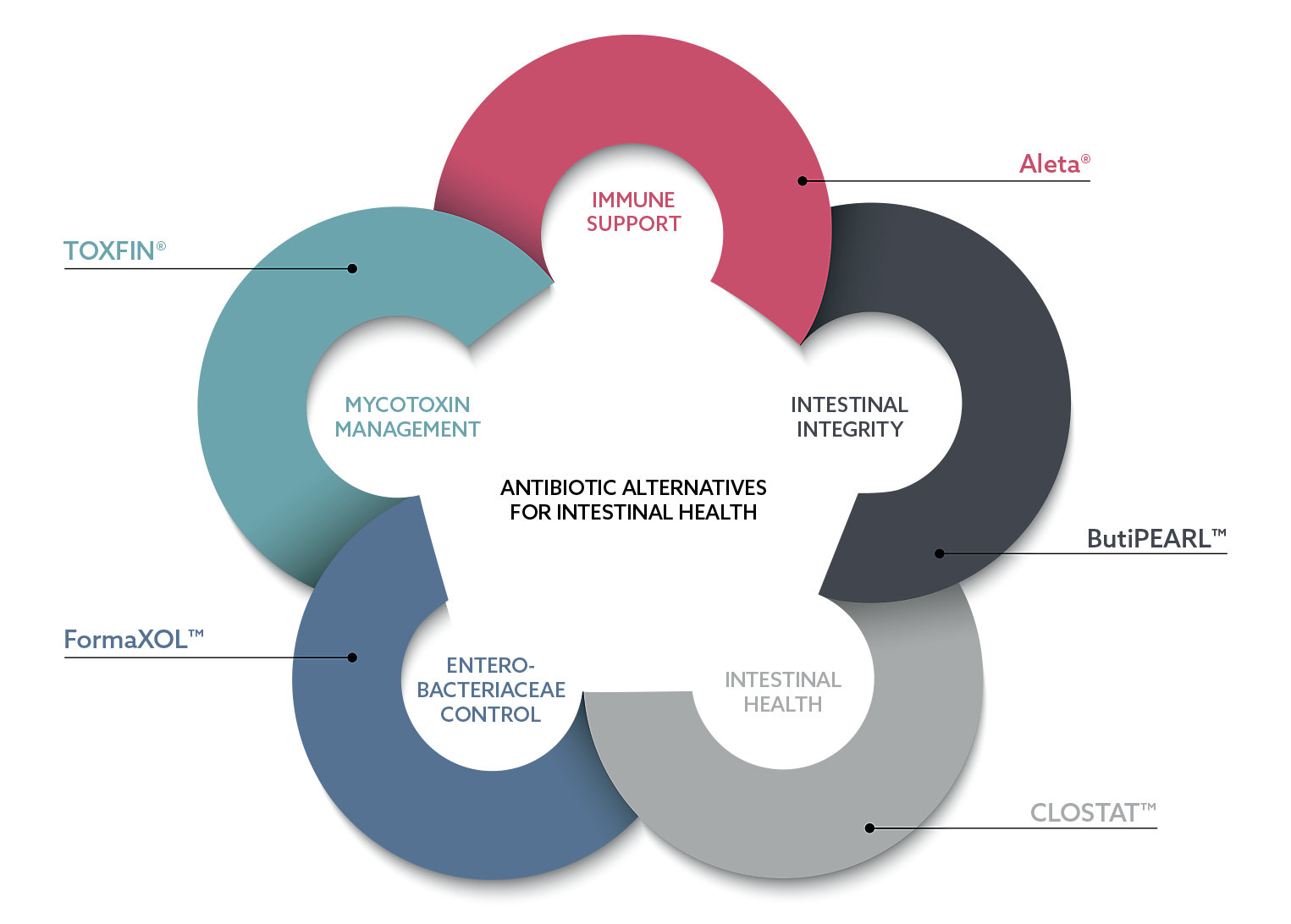The lack of new antibiotics available on the market means that it is crucial to preserve the efficacy of already existing ones, especially when dealing with the critically important antibiotics for human health. Reducing antibiotic usage is crucial — both due to resistance and new regulations to reduce use. This poses significant challenges for pig health professionals and pig producers who strive to improve the livelihood of animals and who now have to do so by reducing overall antibiotic use.
In the pig industry, the failure of antibiotic therapy has an important impact on the wellbeing of pigs. From a practical perspective, the time required to perform the required preliminary analyses is another factor to take into account. For example in case of pig dysentery, sensitivity testing take some time, which poses management and welfare challenges. In general, one of the important causes of antibiotic use in the pig industry are enteric health challenges.
In particular during the pre-weaning period, more recent antibiotics have historically been used, including those considered to be of particular relevance for human health (e.g. fluroquinolones, cephalosporin, colistin). Risks of transmission of bacterial agents from sows to piglets (e.g. Clostridium spp, E. coli) also lead to the prophylactic and metaphylactic use of antibiotics. During the post weaning period, enteric diseases are still a main cause of antibiotic use. As pigs are kept in group and can be coprophagous, enteric diseases can spread fast.
Viral infections such as PRRS can also be factors that contribute to antibiotic use when they lead to secondary infections or depress immunity. In this regards, sound vaccination programs and adequate immune support are valuable health management tools.
At Kemin, we tackle these challenges using our preventative health focus — drawing upon the World Health Organization’s ‘One Health’ approach whereby we believe that our responsibility lies in working together with organizations in various sectors to achieve improved public health outcomes.


